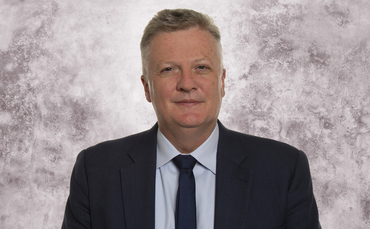During a speech at the Marrakesh Economic Festival in Morocco today (12 October), he said: "We have done a lot over the last two years. A lot of that policy is still to come through, and there is still policy transmission in the pipeline.
"Whether we have done enough - or whether we have more to do - I think is becoming a more finely balanced issue. But we will do what we need to do in order to have inflation at 2% on a lasting basis."
However, Pill also gave strong indications that rates would remain higher for longer: "We are not done."
"It is premature, in my view, from a policy perspective, to talk about the unwinding," he said. "We are still in a phase of inflation back to 2% and we should not be deflected from that phase. It is absolutely crucial that we reinforce the 2% anchor and that ultimately has to be the focus of policy."
Labour market
The labour market was a large focus for Pill, describing it as a "key area of concern" for the Bank of England, warning that the change in immigration rules after Brexit, as well as decreasing labour supply, had led to "issues around mismatch" and less flexibility.
"We are seeing labour hoarding behaviour, and perhaps the re-emergence of insider outsider dynamics in wage-setting," Pill said.
This has recently been seen in a "big discrepancy" between the pay of new hires and incumbents, which would suggest the labour market was behaving in "a different way", he added.
The Bank is still trying to understand the implications of the furlough scheme, as the end of the scheme had not created the expected looseness in the labour market.
"Uncertainties around that period weigh on our interpretation of the labour market going forward," he said.
Pill added that excess savings accumulated during the pandemic had not created a consumption boom, as predicted, even as the BoE "increasingly thinks those have now been used up".
The chief economist also noted a summer 2022 Bank of England forecast, which saw a scenario where gas prices remained at their all-time highs and there was no fiscal response, which issued "pretty bleak" results.
The avoidance of these two hypotheticals explained "quite a lot" of the resilience in the economy, he argued, citing the "very big set of fiscal support" for households and a "significant reversion" of European wholesale gas prices.
Also speaking on the panel, Axel Weber, former chair of UBS and current president of the Center for Financial Studies, argued there was not "a trilemma, or even a dilemma" between monetary policy, fiscal policy and market stabilisation, as getting inflation to 2% was "absolutely essential".
He argued the "difficult part" would be bringing inflation down from 3%, where expectations tend to historically settle after periods of high inflation.
"This has been the highest and shortest rate hiking cycle in history, and, if you look at global rates, it has been the most synchronised rate hiking cycle in history," he said.
He added that the shift had also altered portfolio composition, noting that while equities were the choice for every investor for years, "interest rates are back and bonds are back".
"You will get quite a different portfolio allocation in the world and financial markets will move big time," he said.


